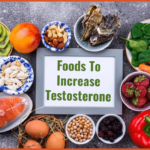Eating a healthy ketogenic diet involves focusing on high-fat, low-carbohydrate foods to promote ketosis, a metabolic state where the body primarily relies on fat for energy. While the ketogenic diet is restrictive, it is still possible to prioritize nutrient-dense and whole foods. Here are some tips to eat healthy on a ketogenic diet:
- Choose healthy fats: Opt for high-quality fats like avocados, nuts, seeds, olives, olive oil, coconut oil, and fatty fish. These provide essential fatty acids and beneficial nutrients.
- Include a variety of non-starchy vegetables: Non-starchy vegetables like leafy greens, broccoli, cauliflower, zucchini, and peppers are low in carbohydrates and rich in vitamins, minerals, and fiber. They add bulk and nutrients to meals.
- Focus on quality protein sources: Incorporate sources of high-quality protein like poultry, eggs, fish, and tofu into your meals. Choose organic and pasture-raised options if possible.
- Emphasize nutrient-dense foods: Include nutrient-dense foods like organ meats, bone broth, and sea vegetables to ensure a well-rounded intake of vitamins and minerals.
- Moderate dairy and dairy alternatives: Opt for full-fat, low-carb dairy options like cheese and Greek yogurt. If preferred, choose dairy alternatives like unsweetened almond or coconut milk.
- Minimize processed and packaged foods: Many processed foods marketed as “keto-friendly” can still be low in nutrients and high in additives. Focus on whole, unprocessed foods to ensure a healthier diet.
- Stay hydrated: Drink plenty of water throughout the day to stay adequately hydrated. Ketosis can increase fluid loss, so it’s essential to replenish fluids regularly.
- Plan meals and snacks: Planning ahead helps ensure that you have a variety of nutrient-dense foods available and reduces reliance on convenience foods.
- Monitor your nutrient intake: Although a ketogenic diet can promote weight loss, it’s important to prioritize adequate intake of essential nutrients. Consider working with a registered dietitian to help tailor the diet to your individual needs.
- Listen to your body: Pay attention to how your body responds to the ketogenic diet. If you experience any adverse effects or health concerns, seek guidance from a healthcare professional.
Remember, the ketogenic diet may not be suitable for everyone, and it’s best to consult with a healthcare professional or registered dietitian before starting any new diet to ensure it aligns with your individual health needs and goals.












888SLOT hỗ trợ nạp tiền qua MoMo, ZaloPay, ngân hàng nội địa – thao tác đơn giản, xử lý trong 30 giây. Rút tiền về tài khoản chỉ sau 5 phút! TONY12-30